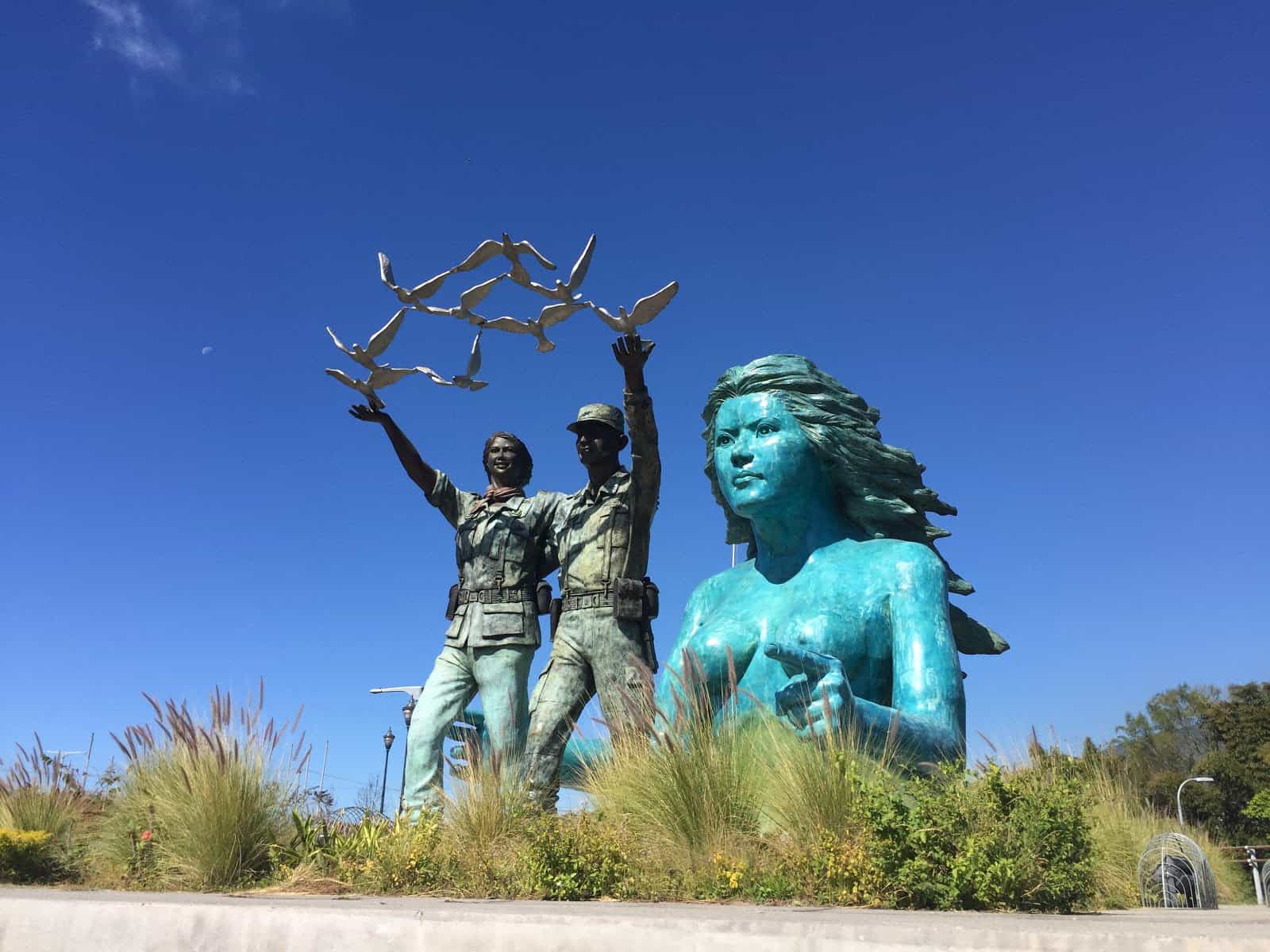The government of El Salvador demolished on Wednesday the Monument to Reconciliation, symbol of the end of the bloody civil war (1980-1992), described by President Nayib Bukele as “unaesthetic” and an apology for pacts between the left and the right.
Bukele, currently out of office for being a reelection candidate, celebrated the demolition of what he called the “supposed ‘monument to reconciliation'”, which, according to him, a critic of the 1992 peace agreements, symbolized a “pact” between former guerrillas and soldiers that did not mean well-being for Salvadorans.
“Not only was it aesthetically horrible, but it glorified the pact between the murderers of our people, to divide the loot,” he said on the X social network.
It consists of three bronze statues, two seven meters high that symbolized a former guerrilla fighter and a soldier in fatigue uniforms, unarmed, with their hands intertwined releasing aluminum doves, representing the sides of the past conflict.
The third statue, 12 meters high, is that of a mother with outstretched arms who had on her right finger a ring representing the commitment of society to live in peace. “Goodbye, blue doll, and everything you represented,” Bukele wrote.
Public Works Minister Romeo Rodríguez said that a 2.5 km pedestrian route will be built and will be part of “the new peace and the new security that all Salvadorans live”, as a result of Bukele’s fight against gangs.
Under UN mediation, the government (right) and the then Farabundo Martí National Liberation Front (FMLN, left) guerrilla signed on January 16, 1992 the agreements that ended the civil war that left more than 75,000 dead, 7,000 missing and millionaire economic losses.
The Monument to Reconciliation, which was made with keys collected by the Catholic Church in its parishes, was inaugurated on the edge of a highway in western San Salvador in 2017, under the FMLN government, for the 25th anniversary of the end of the conflict.






